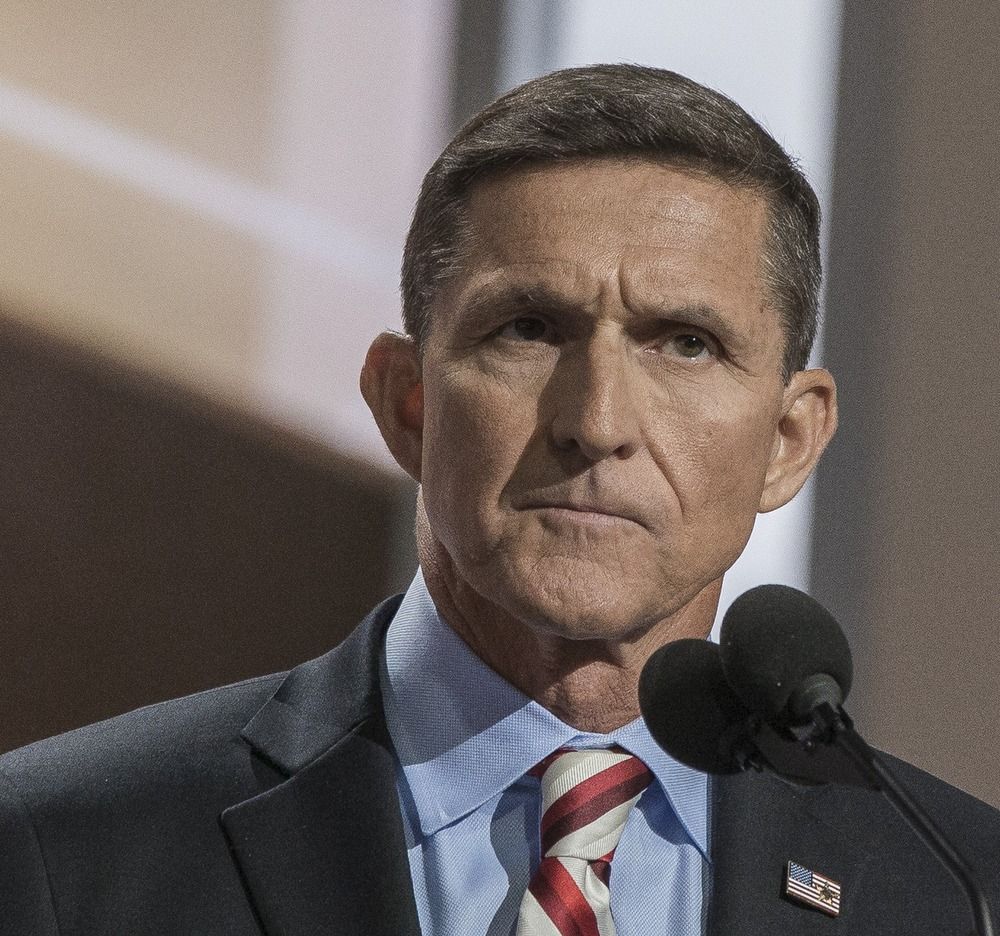Do Flynn’s nuclear dealings top Manafort’s Kurdish referendum?
By Rachel Bronson | September 25, 2017

In what seems to be a competition among former Trump officials to see who can best undermine long-term American interests in the Middle East, the past few weeks have been a doozy to watch. The recent revelation that erstwhile Trump campaign manager Paul Manafort—already under special counsel Robert Mueller’s scrutiny in regard to foreign clients—is working to promote today’s Kurdish referendum on independence from Iraq should be a natural winner. The United States officially opposes this vote, and Kurdish officials that I have spoken with acknowledge that it will cause significant problems with Baghdad and provide the Kurds very few benefits. But what Kurdish leader can vote against independence? It’s a no-win and all-lose situation, with lots of money attached. A perfect fit for Manafort.
But Manafort’s dealings are overshadowed by breaking news in the Wall Street Journal that former National Security Adviser Michael Flynn did not disclose his involvement in a Russian-Saudi nuclear deal—worth hundreds of billions of dollars— that aims to bring civilian nuclear power to the Kingdom. The details of the deal are fuzzy, but it includes Russia building nuclear plants in Saudi Arabia, delivering reactor fuel, and removing spent fuel in an arrangement, often dubbed “buy, own, and operate,” that Moscow employs around the world. The UK’s Guardian newspaper said the plan called for building as many as 40 nuclear reactors across the Middle East through an international consortium that would include companies from the United States, Russia, and a host of other countries.
The deal has far reaching consequences; it would introduce Russian influence into Saudi Arabia’s energy infrastructure, influence that has been to date negligible. It raises a series of connected questions: What are the Russians up to? Why would the Saudis do this? What are US interests in this matter? And who should pursue them?
The Russian piece is fairly straightforward. The Russians are responding to requests from countries around the world for help in building nuclear power plants that could ease their energy challenges and, perhaps, offer military opportunities. As South African expert Emma Lecavalier described in a piece for the Bulletin in 2014, “Moscow quietly became the leader of the $500 billion global nuclear energy market, building 37 percent of all new reactors in the world, eclipsing the United States’ meager 7 percent share.” Russia has recently signed deals across Europe, Latin America, South and Southeast Asia, and the Middle East.
Russian leaders clearly understand that securing a stake in a country’s energy infrastructure gives them long-term clout, and the Middle East offers tremendous opportunity. In 2010, Turkey, a NATO member, signed a $20 billion deal with Russia for four nuclear reactors. In 2015, Jordan, another traditional US ally, penned a $10 billion agreement with Russia for two reactors. In June 2015, when Flynn first got involved, Saudi Arabia signed an agreement with Russia outlining a series of cooperative measures for building nuclear power plants.
For its part, Saudi Arabia has explored nuclear power as a way of serving the country’s growing domestic energy demand—demand now supplied via oil-fired power plants that threaten to swallow up valuable export potential. A civilian nuclear energy program could satisfy electricity demand, increase oil exports, and also serve as a quiet reminder to the Iranians that they are just one among several Gulf actors in the nuclear game, should Tehran abrogate its responsibilities under the Iran nuclear deal or reinstate its nuclear programs when the obligations outlined in the Joint Comprehensive Plan of Action sunset.
Until the Flynn revelations, the United States had been pretty quiet on the issue of Russia’s nuclear involvement in the Middle East. Washington has let the US civilian nuclear prowess wither and therefore cannot bring as much to the Middle East nuclear power bargaining table as it once did. At the same time, the United States hasn’t liked either of the fraught alternatives: helping its allies with their civilian nuclear programs or letting the Russians do it. The result has been US non-action, thereby ceding influence to Russia.
Flynn seems to have made a unilateral decision that Russia should take a leading role, and he has worked hard to facilitate it. He clearly knew that this was a controversial decision: He did not disclose his deep involvement prior to taking his top White House post, and he quietly continued his involvement once under the White House roof. Democrats like Maryland Rep. Elijah Cummings and New York Rep. Eliot Engel have good reason to want to know more.
Washington has real choices to make as it tries to figure out how to manage the future energy landscape in fragile security environments like the Middle East. But it is dangerous to let rogue actors like Mike Flynn make those decision for us. For this reason, Flynn gets my vote for this month’s most destructive actor award. An ignominious award with far too many contenders.
Together, we make the world safer.
The Bulletin elevates expert voices above the noise. But as an independent nonprofit organization, our operations depend on the support of readers like you. Help us continue to deliver quality journalism that holds leaders accountable. Your support of our work at any level is important. In return, we promise our coverage will be understandable, influential, vigilant, solution-oriented, and fair-minded. Together we can make a difference.














